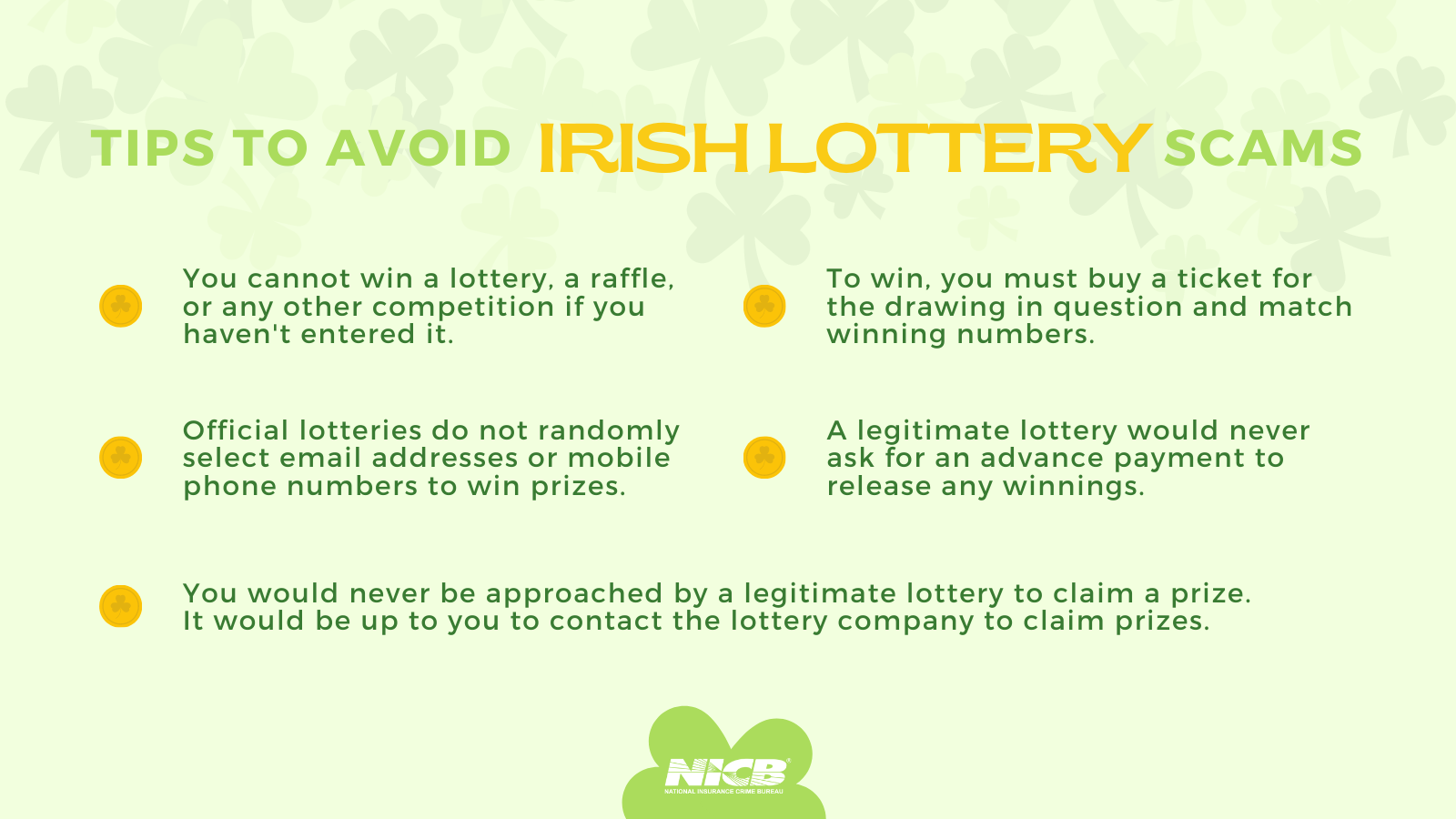Luck of the Irish Scams
We all hope to have the “Luck of the Irish” on our side. But this St. Patrick’s Day, don't be fooled by messages claiming you’ve won a pot of gold.
During the month of March, scammers contact individuals with a message stating that they’ve won a big prize and need to provide personal details in order to claim it. Many of these messages are sent via email and claim to be from the “Irish National Lottery."
Tips to Avoid Scams From the Irish Lottery:
- You cannot win a lottery, raffle, or any other competition if you have not entered it.
- To win a lottery, you must buy a ticket for the drawing in question and match the winning numbers.
- Official lotteries do not randomly select email addresses or mobile phone numbers to win prizes.
- You would never be approached by a legitimate lottery to claim a prize. You may be notified of a win and advised to check your emails, but it would always be up to you to contact the lottery company to claim any prizes you are due.
- A legitimate lottery would never ask for an advance payment before winnings can be released.
The National Insurance Crime Bureau is encouraging consumers to be alert for scams such as these. Don’t engage with unknown callers or senders asking for money. Never believe you have won money from a competition that you did not enter.
NICB Online Tips:
- Only disclose information online when the website is secure.
- Before revealing any information – online, over the phone, or in-person – ask how it will be used.
- Carefully review all monthly credit card statements and check for unauthorized use.
If you become a victim of identity theft, we encourage you to contact the Federal Trade Commission.
